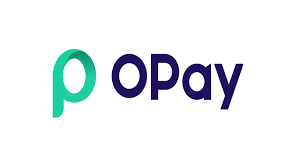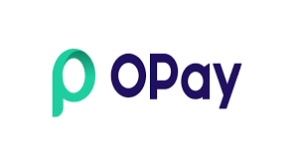CBN And Opay News Today 2024 (A Must Know)

CBN And Opay News Today 2024 (A Must Know)
The financial system in Nigeria has been undergoing significant changes, with fintech companies like OPay playing a crucial role in driving innovation and financial inclusion.
However, recent directives from the Central Bank of Nigeria (CBN) have brought these fintech firms under scrutiny.
In this article, we’ll look into the CBN And Opay News Today 2024, together with the reasons behind the CBN’s actions, the implications for the fintech industry, and the broader impact on Nigeria’s financial ecosystem.
Background on CBN and OPay

The Central Bank of Nigeria (CBN)
The Central Bank of Nigeria (CBN) is the apex monetary authority in Nigeria, responsible for regulating the country’s financial institutions and ensuring monetary and financial stability.
Established in 1958, the CBN has played a pivotal role in shaping Nigeria’s economic policies and financial regulations.
Its primary functions include issuing currency, managing foreign reserves, and overseeing the banking sector.
OPay: A Fintech Pioneer
OPay, a subsidiary of the Chinese company Opera, has emerged as a leading fintech company in Nigeria. Launched in 2018, OPay offers a wide range of financial services, including mobile payments, money transfers, and lending.
The company’s innovative approach and user-friendly platform have made it a popular choice among Nigerians, particularly those in underserved and unbanked communities.
Recent Developments: CBN’s Directive to OPay and Other Fintechs

The Directive
In a recent move, the CBN issued a directive to four prominent fintech companies—OPay, Palmpay , Kuda Bank, and Moniepoint—ordering them to suspend the onboarding of new customers until further notice.
This directive comes in the wake of allegations that these fintech firms’ accounts were being used for illicit foreign exchange transactions.
This CBN and OPay news today has significant implications for the fintech industry.
Reasons Behind the Directive
The CBN’s directive is primarily driven by concerns over the misuse of fintech platforms for illegal activities, including money laundering and terrorism financing.
According to reports, the Economic and Financial Crimes Commission (EFCC) had obtained a court order to freeze over 1,000 bank accounts linked to individuals and companies allegedly involved in illegal foreign exchange transactions.
The CBN’s directive aims to curb these activities and ensure the integrity of Nigeria’s financial system.
Read: How to Delete Opay Account Permanently in 2024
Reactions from the Fintech Industry
The directive has sparked mixed reactions within the fintech industry.
Representatives from some of the affected companies have expressed concerns that the CBN’s actions may be misdirected, pointing out that the majority of the implicated accounts are held by commercial banks rather than fintech platforms.
They argue that targeting fintech firms alone may not effectively address the broader issue of illicit financial activities.
This aspect of the CBN and OPay news today highlights the complexities of regulating the fintech sector.
Implications for OPay and the Fintech Industry
Impact on OPay
For OPay, the CBN’s directive poses significant challenges. The suspension of new customer onboarding could hinder the company’s growth and expansion plans.
OPay has been instrumental in promoting financial inclusion in Nigeria, and any disruption to its operations could have far-reaching consequences for its users, particularly those in underserved communities.
This development in the CBN and OPay news today underscores the delicate balance between regulation and innovation.
Broader Implications for the Fintech Industry
The CBN’s directive also raises broader questions about the regulatory environment for fintech companies in Nigeria.
While the CBN’s actions are aimed at safeguarding the financial system, they also highlight the need for a balanced approach that supports innovation while ensuring compliance with regulatory standards.
The fintech industry in Nigeria has been a driving force for financial inclusion and economic growth, and any regulatory measures must consider the potential impact on this vital sector. This is a crucial point in the CBN and OPay news today.
The Role of Regulatory Compliance
Ensuring Compliance
For fintech companies like OPay, regulatory compliance is crucial to maintaining trust and credibility.
The CBN’s directive underscores the importance of robust compliance measures to prevent misuse of financial platforms for illegal activities.
Fintech firms must invest in advanced technologies and processes to detect and prevent fraudulent transactions, ensuring that their platforms are not exploited for illicit purposes.
This aspect of the CBN and OPay news today highlights the ongoing efforts to enhance regulatory compliance.
Collaboration with Regulators
Collaboration between fintech companies and regulators is essential to address the challenges facing the financial sector.
By working closely with the CBN and other regulatory bodies, fintech firms can develop effective strategies to combat financial crimes while promoting innovation and financial inclusion.
Open dialogue and cooperation are key to creating a regulatory framework that supports the growth of the fintech industry while safeguarding the integrity of the financial system.
This collaborative approach is a significant theme in the CBN and OPay news today.
The Future of Fintech in Nigeria
Opportunities and Challenges
Despite the challenges posed by the CBN’s directive, the future of fintech in Nigeria remains promising.
The country’s large and youthful population, coupled with increasing smartphone penetration, presents significant opportunities for fintech companies to expand their reach and impact.
However, navigating the regulatory landscape will be crucial to realizing these opportunities. This forward-looking perspective is an important part of the CBN and OPay news today.
Innovation and Adaptation
Innovation and adaptation will be critical for fintech companies like OPay to thrive in the evolving regulatory environment.
By leveraging cutting-edge technologies such as artificial intelligence and blockchain, fintech firms can enhance their compliance capabilities and offer secure, efficient financial services.
Additionally, fostering a culture of transparency and accountability will be essential to building trust with regulators and customers alike. This focus on innovation is a key takeaway from the CBN and OPay news today.
Conclusion
The recent developments involving the CBN and OPay highlight the complex interplay between regulation and innovation in Nigeria’s financial sector.
While the CBN’s directive aims to address legitimate concerns about illicit financial activities, it also underscores the need for a balanced regulatory approach that supports the growth of the fintech industry.
For OPay and other fintech companies, navigating this landscape will require a commitment to compliance, collaboration with regulators, and a focus on innovation.
By doing so, they can continue to drive financial inclusion and economic growth in Nigeria, contributing to a more inclusive and prosperous future for all.
This comprehensive analysis of the CBN and OPay news today provides valuable insights into the current state and future prospects of the fintech industry in Nigeria.
